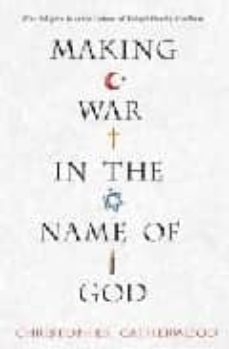Imprescindibles
Ficción
No Ficción
Ciencias y tecnología Biología Ciencias Ciencias naturales Divulgación científica Informática Ingeniería Matemáticas Medicina Salud y dietas Filología Biblioteconomía Estudios filológicos Estudios lingüísticos Estudios literarios Historia y crítica de la Literatura
Humanidades Autoayuda y espiritualidad Ciencias humanas Derecho Economía y Empresa Psicología y Pedagogía Filosofía Sociología Historia Arqueología Biografías Historia de España Historia Universal Historia por países
Infantil
Juvenil
#Jóvenes lectores Narrativa juvenil Clásicos adaptados Libros Wattpad Libros Booktok Libros de influencers Libros de Youtubers Libros Spicy Juveniles Libros LGTBIQ+ Temas sociales Libros ciencia ficción Libros de acción y aventura Cómic y manga juvenil Cómic juvenil Manga Shonen Manga Shojo Autores destacados Jennifer L. Armentrout Eloy Moreno Nerea Llanes Hannah Nicole Maehrer
Libros de fantasía Cozy Fantasy Dark academia Hadas y Fae Romantasy Royal Fantasy Urban Fantasy Vampiros y hombres lobo Otros Misterio y terror Cozy mistery Policiaca Spooky Terror Thriller y suspense Otros
Libros románticos y de amor Dark Romance Clean Romance Cowboy Romance Mafia y amor Romance dramatico Romcom libros Sport Romance Otros Clichés Enemies to Lovers Friends to Lovers Hermanastros Slow Burn Fake Dating Triángulo amoroso
Cómic y manga
Novela gráfica Novela gráfica americana Novela gráfica europea Novela gráfica de otros países Personajes, series y sagas Series y sagas Star Wars Superhéroes Cómics DC Cómics Marvel Cómics otros superhéroes Cómics Valiant
Cómics Libros de ilustración Cómic de humor Comic erótico Historia y técnica del cómic Cómic infantil y juvenil Cómic infantil Cómic juvenil
Top más leídos
eBooks
Literatura Contemporánea Narrativa fantástica Novela de ciencia ficción Novela de terror Novela histórica Novela negra Novela romántica y erótica Juvenil Más de 13 años Más de 15 años Infantil eBooks infantiles
Humanidades Autoayuda y espiritualidad Ciencias humanas Economía y Empresa Psicología y Pedagogía Filosofía Historia Historia de España Historia Universal Arte Cine Música Historia del arte
Ciencia y tecnología Ciencias naturales Divulgación científica Medicina Salud y dietas Filología Estudios lingüísticos Estudios literarios Historia y crítica de la Literatura Estilo de vida Cocina Guías de viaje Ocio y deportes
CHRISTOPHER CATHERWOOD
Recibe novedades de CHRISTOPHER CATHERWOOD directamente en tu email
Filtros
Del 1 al 3 de 3
EL ATENEO (ARGENTINA) 9789500204309
Trece siglos de guerras santas. Cristianos contra musulmanes. Sunnitas contra chiítas. Católicos contra protestantes. ¿Por qué los hombres emprenden guerras en nombre de Dios? Desde las primeras jihads del siglo VII y las cruzadas de la Edad Media, hasta las guerras de la Reforma y el terrorismo de los fanáticos de hoy, el ensayista Christopher Catherwood recorre la fascinante historia de las guerras santas y revela las sutilezas y los complejos detalles que resultan esenciales para comprender un tema que sigue dividiendo a la humanidad. El resultado es un libro agudo que analiza el pasado que ha forjado nuestro violento presente y la siniestra conexión entre guerra y religión.
Ver más
Tapa blanda
CITADEL (CAROL) 9780806527864
Based on exhaustive research and written with an unflinching, unbiased eye towards revealing the often painful truth, Making War in the Name of God unveils humanity's ancient habit of sanctifying bloodshed - and exposes a past that seems doomed to repeat itself every day from the Middle East to Europe. From the first Jihads and the Crusades to the sectarian terrorism of today, acclaimed scholar Catherwood traces the fascinating history of holy war, revealing complexities that are vital to understanding a subject that continues to divide us all.
Ver más
Tapa blanda
ROBINSON PUBLISHING LTD. 9781841199399
As Colonial Secretary in the 1920s Winston Churchill made a decision regarding the Middle East that was to have calamitous consequences. Scholar and strategic policy consultant, Christopher Catherwood discusses how Churchill created an artificial monarchy of Iraq after the First World War, forcing three radically different peoples to combine under a single ruler. Today's map of the Middle East, the rise of Saddam Hussein and Gulf Wars of 1991 and 2003 are the unwitting legacy of a conference led by Churchill in Cairo in 1921. Inducing Arabs under the rule of the Ottoman Turks to rebel against their oppressors - abetted by T. E. Lawrence - the British and French during the First World War convinced the Hashemite clan that they would rule over Syria. In fact, Britain had already promised the territory to the French. Partly to make amends and partly for pragmatic economic reasons, Churchill created a single nation state, Iraq, and made the Hashemite leader Feisel king of a land with which he had no connection. Catherwood dissects Churchill's decision - the results of which continue to cause terrible grief to Iraq's indigenous peoples and anxiety to the rest of the world.
Ver más
Tapa blanda
Del 1 al 3 de 3


























